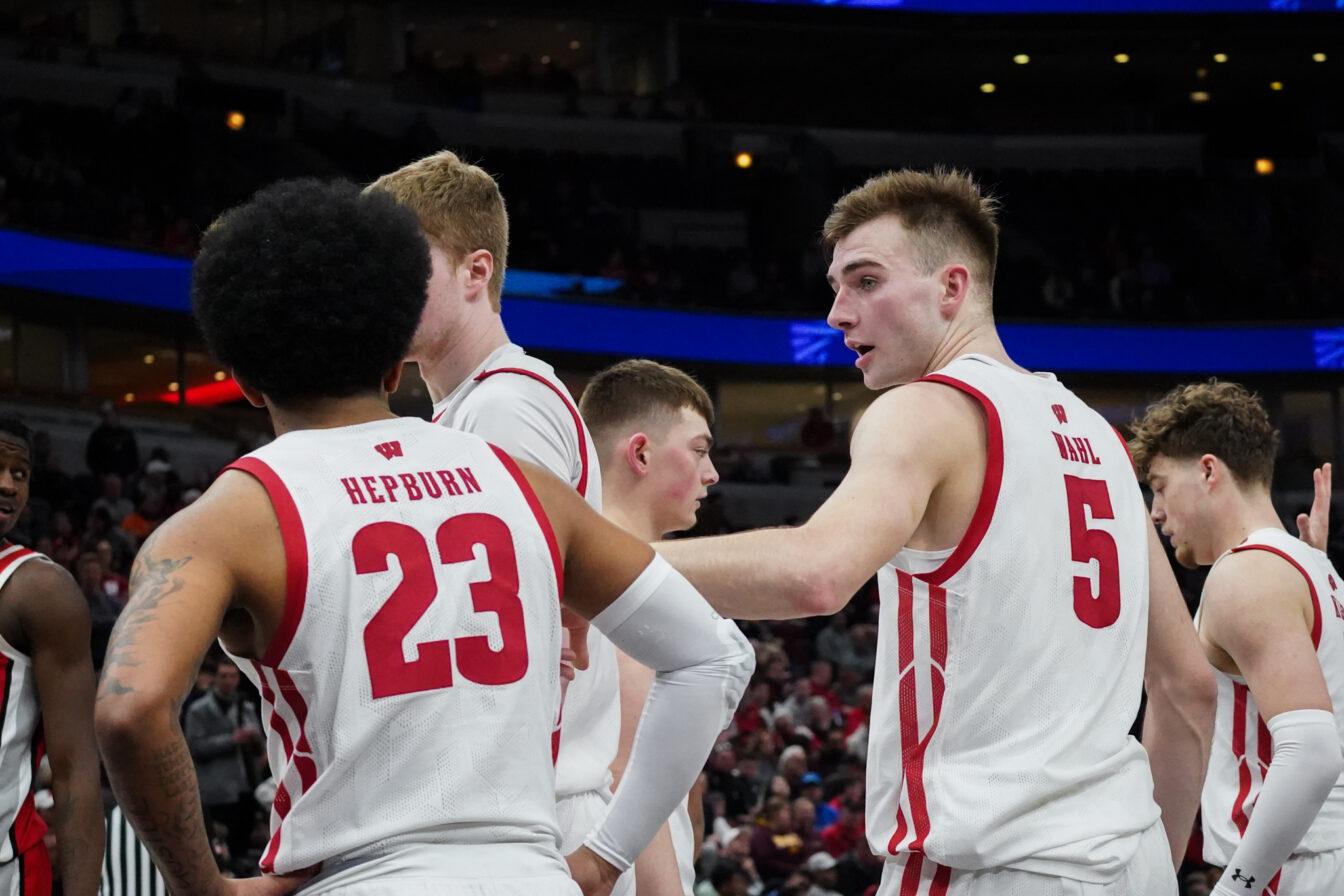The University of Wisconsin men’s basketball team wrapped up their season with a frustrating 56-54 loss to North Texas in the National Invitation Tournament semifinals, a loss that perfectly encapsulated their up-and-down 2022-2023 season. Like the first half of the season, the Badgers played some of their best basketball early on against North Texas. As was the case in the second half of the season, offensive ineptitude plagued the Badgers — Greg Gard’s group failed to score in the last nine minutes of the game.
Fresh off a successful 2021-2022 season where Badger fans enjoyed a Maui Invitational championship and a share of a Big Ten regular season title, the departure of stars Johnny Davis and Brad Davison, who combined for 33.8 points per game, provided a challenge for coach Gard and his staff.
The Big Ten media noted these personnel losses by ranking Wisconsin No.9 in their preseason media poll, preparing Badger fans for a rebuilding season on the bubble of the Big Dance.
The Badgers came out hot with a strong showing in the Battle for Atlantis tournament. They defeated both Dayton University and the University of Southern California in the tournament. Looking back, a Thanksgiving day loss to nationally ranked Kansas University, where the Jayhawks hit buzzer beaters in regulation and overtime, represented a huge missed opportunity for an elite win.
The Badgers, however, wasted no time getting that signature win. They knocked off in-state rival Marquette University on the road in another thrilling overtime game. After Wisconsin showed Marquette who runs the state, the Golden Eagles would go on to win both the Big East regular season title and the Big East tournament.
A home win against No.13 University of Maryland and yet another overtime win at the University of Iowa brought the Badgers to 2-0 in Big Ten play and had fans in good spirits. Yet again, it appeared as if the Big Ten media underrated the Badgers.
After peaking at #14 in the AP Poll, it all began to unravel when sole senior, Tyler Wahl, suffered an ankle injury against the University of Minnesota. The injury quelled the Minnesota native for the next three games. The absence of Wahl, who had started out the season on an all-Big Ten pace, proved to be a turning point in the Badgers’ season.
Following this fateful January 3 win over Minnesota, the Badgers limped through the remainder of Big Ten play with a 6-12 record, a stretch where they failed to win any back-to-back games. While there were highs to the season, notably against Hunter Dickinson and the University of Michigan on Valentine’s Day, the Badgers placed 11th in the Big Ten. Their conference play concluded with a loss to Ohio State on the first day of the Big Ten Tournament and left fans with a bad taste in their mouths.
For only the second time in 25 years, the Badgers failed to make the NCAA Tournament. A run to the semifinals in the NIT gave the Badger faithful something to cheer for, but their 13-point second half against North Texas further exposed the gaps in this team’s roster.
The Badgers finished their season with 23 close games (6 points or less, or overtime), according to analytics website barttorvik.com. This mark was the highest of any Division I team since the website began tracking in 2008, demonstrating the flaws of Gard’s low-possession system.
Despite the low expectation prior to the season, the archaic pace and product displayed throughout the season raised questions about coach Gard’s future.
The failure of this year’s Badger team can be primarily attributed to poor roster construction by Gard and his staff. After the departure of backup center Chris Vogt, Gard failed to bring in another big man and opted to play former walk-on Carter Gilmore.
Wofford transfer Max Klesmit, whose two-way prowess transformed him into a starter, was a bright spot in this year’s transfer portal.
This year’s roster was incredibly sparse in offensive creation and athleticism partly due to a failure in the transfer portal zero top-100 recruits. Towards the end of the season, Gard told reporters his thoughts on the shortcomings of his team.
“I think we have to add depth regardless. I’m not naïve. We have to get bigger, more experienced, stronger, more athletic, whatever you want to throw out there,” Gard said.
For Wisconsin to achieve these goals and reach the top of the Big Ten, Gard must land multiple transfers that fit these descriptions and land a top-100 recruit such as Kon Knueppel, Daniel Freitag or Nick Janowski.
Looking ahead to the 2023-2024 season, expectations are high for the Badgers. Every player on this year’s roster will have the opportunity to return, including starters Chucky Hepburn, Connor Essegian, Max Klesmit, Tyler Wahl and Steven Crowl.
The emergence of freshman Connor Essegian as a program cornerstone was a welcome sight for Badger fans. With a productive summer, Essegian is a prime candidate for a huge sophomore leap and should lead the team in scoring next season. With the additions of freshmen Gus Yalden and Nolan Winter in the frontcourt, the roster could be much more complete next season.
Gard’s job should be safe for next season, but Athletic Director Chris McIntosh proved his willingness to shake things up when he fired football coach Paul Chryst in the fall of 2022 and men’s hockey coach Tony Granato this March.
While the 2022-2023 basketball season was always supposed to be a rebuilding year, anything short of an NCAA Tournament appearance in the 2023-2024 season will be considered unacceptable for the Badgers. If they end up on the wrong side of the bubble again, the Badgers are in for a contentious offseason where drastic changes could happen, starting with a new head coach.


